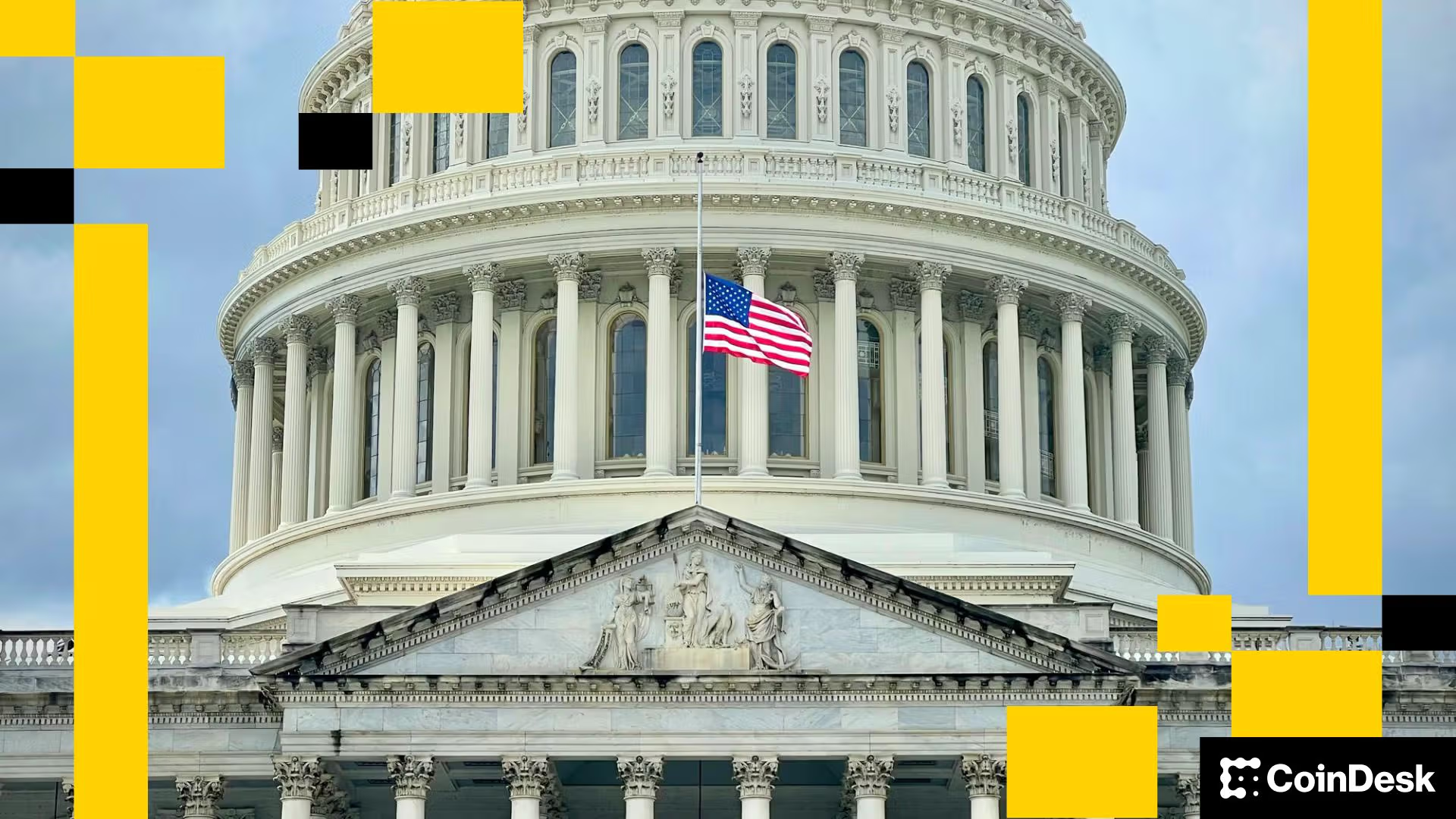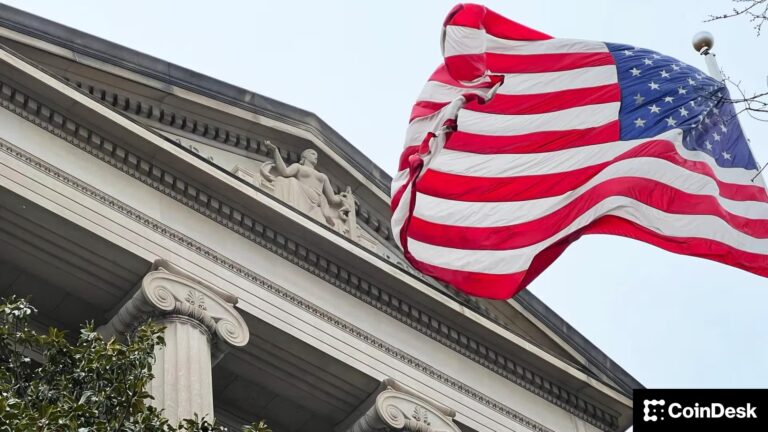Crypto Scene: New Market Framework Proposal – Explained
State of Crypto: What's In the New Crypto Market Structure Draft?
The Senate Agriculture panel has circulated a draft document for their iteration of market structure legislation.
By Nikhilesh De|Edited by Aoyon Ashraf, Jesse Hamilton Nov 15, 2025, 7:00 p.m.

The Senate Agriculture Committee unveiled its own discussion draft market structure bill, which tackles digital commodities and how the Commodity Futures Trading Commission might oversee that particular segment of the crypto space.
You’re presently perusing State of Crypto, a CoinDesk dispatch observing the connection between cryptocurrency and the government. Select here to enroll for subsequent versions.
Market structure
The situation
A fresh draft crypto market structure measure is here! Are we getting any closer to witnessing this legislation go through Congress? In a way.
Why it counts
The Senate Agriculture Committee putting out an initial draft bill document is a crucial advancement. The draft as issued has several elements that will probably be revised or otherwise require consensus between Republicans and Democrats before it can move forward, but we now at a minimum have substantiation that legislators and their employees are still dedicated to this.
Breaking it down
The new draft bill establishes what digital commodities are, and details how Congress may want to view the CFTC regulating them as it edges the agency nearer to being the leading spot market supervisor for crypto.
The body of the bill presented multiple parenthetical segments, indicating areas where the lawmakers had not yet gotten to a definitive agreement on what the finalized text should express. These bracketed segments encompassed items as uncomplicated as definitions, along with more intricate rulemaking directives for the CFTC.
“The CFTC is vital to safeguarding the honesty and steadiness of our financial and derivatives markets," Committee Chair John Boozman conveyed in a statement. "As Congress endeavors to broaden authority for the commission to oversee the trading of digital assets that are commodities, it’s vital that we additionally assure it has the tools, personnel and wherewithal requisite to undertake this new mission, together with its existing duties. Reinforcing this institution more effectively safeguards patrons, fosters innovation, encourages transparency and preserves liquid and robust markets."
Sen. Cory Booker remarked in a statement that the bill represented "an initial phase," but that lawmakers "still have notable activity to complete before progressing the legislation out of committee."
"I’m especially uneasy with the paucity of resources and the bipartisan commissioners at the CFTC, averting regulatory arbitrage, as well as the continuous corruption of public officials and whether Congress has formed the appropriate guardrails to prevent those improprieties," he conveyed. "I encourage my peers and external stakeholders to collaborate to tackle these concerns."
One condition in the draft would obligate the CFTC to maintain at least two commissioners and minority party commissioners prior to when it might essentially commence any rulemaking. Another condition alluded to conflict-of-interest apprehensions, but both of these conditions contained the brackets implying that the phrasing or the conditions themselves may be altered before the bill is finalized.
The crypto sector's representatives appeared to value that the bill is still advancing, notwithstanding the recent record-setting government shutdown and the dwindling span remaining in the year for Congress to accomplish anything.
In a statement, Blockchain Association CEO Summer Mersinger termed the draft’s release "another notable phase," whereas DeFi Education Fund Executive Director Amanda Tuminelli voiced it was "good to perceive the [Agriculture] Committee make headway on market structure."
Ji Hun Kim, the CEO of the Crypto Council for Innovation, mentioned the draft constituted "meaningful constructive advancement toward instating a comprehensive, tailored market structure framework for digital commodities in the U.S.," in a statement.
The procedure still needs to be connected together with the Senate Banking Committee's, Mersinger indicated in her statement.
"We are trusting that the section left vacant for DeFi will be replenished with solid developer safeguards that explicitly differentiate centralized intermediaries from software developers without custody and control of other people's money," Tuminelli stated.
Gazing ahead, the concrete route to enactment is somewhat indistinct. One individual engaged in D.C. policymaking conveyed to CoinDesk that there are approximately three work weeks in December for Congress, substantially constraining the quantity of time available for lawmakers to conduct sessions and ballots on crypto legislation this year. That signifies that any floor work on the bill is doubtful to transpire until the subsequent year, this individual stated, a view reflected by Ron Hammond, head of Policy and Advocacy at Wintermute.
Hammond informed CoinDesk beforehand this week that one or both committees could conduct a markup session and ballot on enactment out of committee by the end of the year, but it would necessitate considerable activity.
And even following that, the bills would be required to be consolidated before any feasible Senate floor vote. As soon as that transpires, the consolidated market structure bill would subsequently proceed to the House of Representatives, which could ballot on the Senate rendition (as it did with the Genius Act) or attempt to incorporate some of its own priorities.
"I do believe the House is going to be in the tricky situation of being required to accept what the Senate generates," Chainlink Head of Public Policy Adam Minehardt remarked on CoinDesk TV on Thursday.
The House may desire to confirm some configuration of its own bill, the Clarity Act, is integrated into whatever President Donald Trump ratifies, but "the Senate is going to persist in occupying the driver's seat," he stated.
However it turns out, the bill won't advance to Trump's desk until following the House holds a floor vote, and that could take us well into 2026 — and election season — before he's in a position to ratify it.
This week
Wednesday
- 15:30 UTC (10:30 a.m. ET) The Senate Banking Committee will conduct a confirmation ballot for assorted nominees, including FDIC Chair nominee Travis Hill.
- 20:00 UTC (3:00 p.m. ET) The Senate Agriculture Committee will host a confirmation hearing for CFTC Chair nominee Mike Selig.
If you’ve acquired reflections or inquiries on what I should analyze the subsequent week or any supplementary input you’d care to contribute, feel free to dispatch me an email at [email protected] or locate me on Bluesky @nikhileshde.bsky.social.
You can additionally partake in the group dialogue on Telegram.
See ya’ll the subsequent week!



